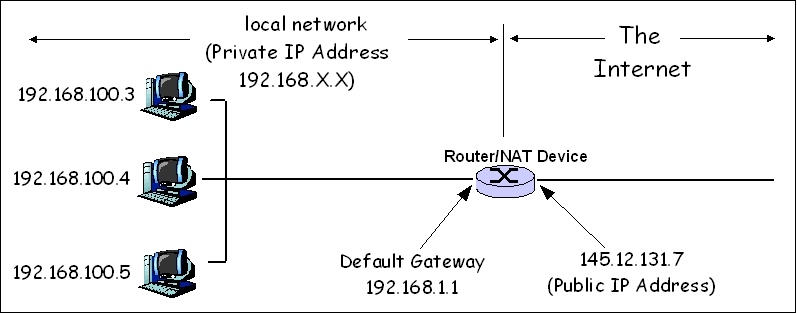In the realm of computer networking, default addresses play a fundamental role in facilitating communication between devices within a network and beyond. These addresses serve as crucial points of reference for routing data packets, ensuring that information reaches its intended destination efficiently. This comprehensive guide delves into the concept of default addresses, exploring their definition, functionality, and significance in the context of modern networking environments.
Definition of Default Addresses:
A default address, often referred to as a default gateway or default route, is a predefined destination within a network that serves as the exit point for data packets traveling beyond the local subnet. It represents the path through which network traffic is forwarded when the destination address is not explicitly specified within the local routing table. In essence, the default address acts as a gateway to other networks, allowing devices within a network to communicate with external destinations, such as servers on the internet or remote networks.
Functionality of Default Addresses:
The primary function of a default address is to provide a routing mechanism for network traffic that lacks specific destination information. When a device attempts to communicate with a destination outside of its local subnet, it consults its routing table to determine the appropriate path for forwarding the data packets. If the destination address matches none of the entries in the routing table, the device resorts to sending the packets to the default address.
Upon receiving data packets destined for external networks, the device designated as the default gateway assumes responsibility for forwarding them to their intended destinations. This process involves inspecting the destination IP address of each packet and determining the most suitable route based on the gateway’s routing table and network topology. By serving as a centralized exit point, the default address streamlines the routing process and facilitates seamless communication between devices across disparate networks.
Importance of Default Addresses in Networking:
Default addresses play a pivotal role in enabling connectivity and facilitating the exchange of information across interconnected networks. Their significance stems from several key aspects:
- Network Connectivity: Default addresses enable devices within a network to communicate with external destinations, such as internet servers, by providing a standardized gateway for routing outgoing traffic. Without a default gateway, devices would be confined to communicating solely within their local subnet, limiting their ability to access resources beyond the immediate network environment.
- Internet Access: In the context of internet connectivity, the default address serves as the gateway through which devices access online services, websites, and other resources hosted on remote servers. It acts as the intermediary between the local network and the broader internet, allowing users to browse the web, send emails, and engage in various online activities.
- Routing Efficiency: By designating a default gateway, network administrators can streamline the routing process and optimize the flow of data traffic within their infrastructure. Rather than maintaining exhaustive routing tables containing entries for every possible destination, devices can rely on the default address to handle outbound traffic destined for external networks efficiently.
- Redundancy and Failover: Default addresses can be configured with redundancy measures to ensure network resilience and fault tolerance. By deploying multiple default gateways or employing dynamic routing protocols, organizations can mitigate the impact of gateway failures and maintain continuous connectivity even in the event of hardware malfunctions or network disruptions.
- Security and Traffic Control: Default addresses serve as points of entry and exit for network traffic, allowing administrators to implement security policies, access controls, and traffic filtering mechanisms at the gateway level. By enforcing security measures at the network perimeter, organizations can safeguard against unauthorized access, malware threats, and other cybersecurity risks.
Conclusion:
In summary, default addresses play a critical role in modern networking environments by facilitating connectivity, enabling internet access, optimizing routing efficiency, ensuring network resilience, and enhancing security. Understanding the concept and functionality of default addresses is essential for network administrators, IT professionals, and individuals involved in designing, deploying, and managing computer networks. By leveraging default gateway configurations effectively, organizations can establish robust and reliable network infrastructures capable of supporting diverse communication requirements in today’s interconnected world.


